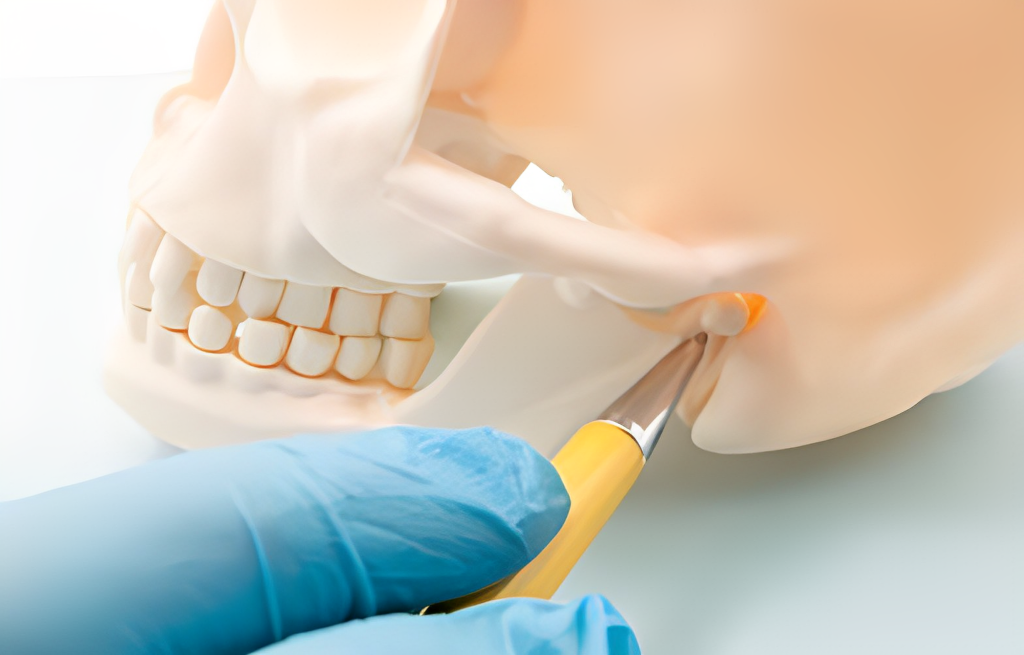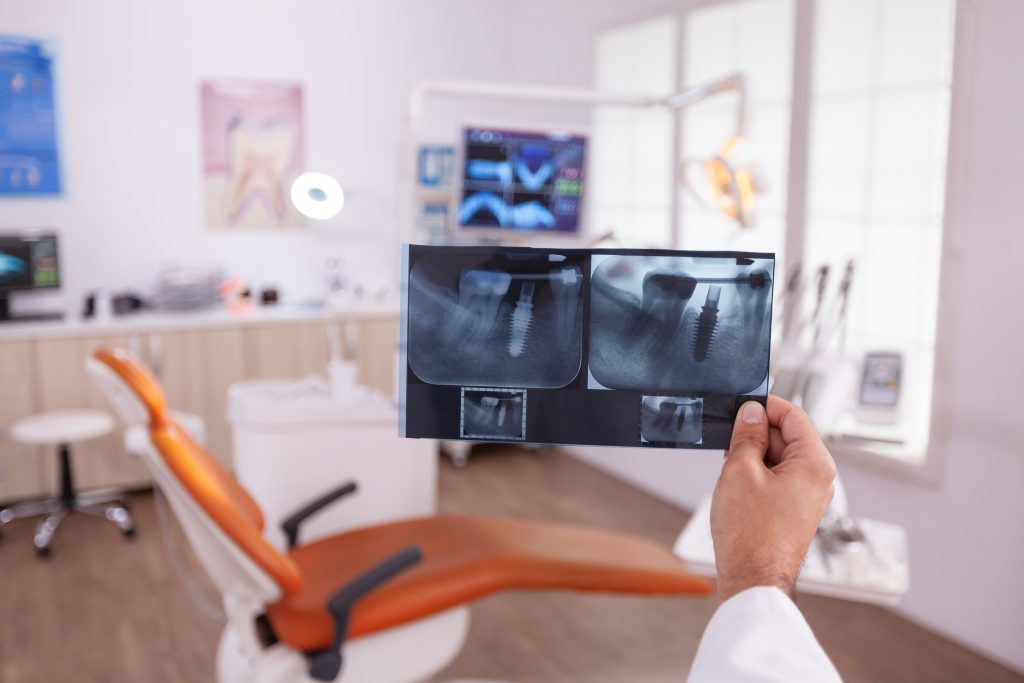TMJ Surgery
TMJ Surgery (temporomandibular joint disorder) is conducted to fix the various painful jaw conditions associated with it. The specific joint that leads to this problem connects the jaw bone to the skull. Due to the intricate nature of the temporomandibular joint, which involves both hinging and sliding movements, treating or rectifying TMJ disorders can be quite difficult.

If at-home treatments for TMJ jaw issues, such as using ice, consuming soft foods, wearing tooth guards, and receiving dental treatment, have failed to provide relief and you are experiencing intense pain or limited movement in your jaw, TMJ surgery may be considered as a final option.
Am I a Candidate for TMJ Surgery?
“This particular form of TMJ surgery can be employed for addressing TMJ disorders, specifically in cases where:”
- The breakdown of tissue or bone is being caused by a medical condition known as joint disease.
- You have scar tissue
- The cartilage on the joint is too thick
- The joint is afflicted with significant disc issues.
- An injury has loosened the joint
You are not a good candidate if:
- The jaw is experiencing inflammation that has not been identified yet.
- You have an infection
- You have a tumor
- The ear on the side where the surgery is required is the only one through which you can hear.
Being overweight can also impact your eligibility for TMJ surgery. If you have an excessive amount of skin due to obesity, it can pose a challenge for the surgeon to reach the jaw joint effectively.
What are the types of TMJ surgery?
Depending on the severity or specific symptoms experienced, there are various types of TMJ surgery that can be considered.
Arthroscopy
Arthroscopy is a surgical procedure for the TMJ that is typically done while the patient is under general anesthesia. During this operation, the surgeon will create a small incision in front of the ear and then insert a thin instrument with a light and lens. Any images captured by the lens will be displayed on a video screen for the surgeon to analyze the area around the joint. Depending on the underlying cause of the patient’s TMJ pain, the surgeon may choose to readjust the TMJ disc or remove inflamed tissue. Since arthroscopic surgery requires only small incisions, the patient will experience a shorter recovery time, minimal scarring, and reduced discomfort. This procedure also carries fewer complications compared to open-joint surgery.
Arthrocentesis

The process of arthrocentesis involves the injection of fluid into the joint, which helps eliminate inflammation-related chemical substances and alleviate pressure responsible for joint stiffness and pain. This procedure can potentially restore a portion of your jaw’s mobility.
This procedure is considered to be non-invasive. Typically, patients are able to return to their homes on the same day. The recovery period is brief, and the likelihood of success is high. Based on research conducted in 2012, arthrocentesis has shown an average enhancement of 80 percent in alleviating symptoms.
Arthrocentesis, often considered as the initial intervention, is preferred due to its lower invasiveness and higher efficacy compared to other complex procedures.
Joint replacement
Implants can be surgically inserted into the jaw to replace part or all of the temporomandibular joint, which is done for the treatment of severe TMJ disorder. This method is specifically for individuals who experience intense pain or have severely restricted movement and have not seen improvement with other treatments. If you are contemplating joint replacement, it is advisable to seek the perspectives of multiple healthcare providers.
What is the primary reason behind TMJ dysfunction?

TMD does not have a single cause. Instead, it can be caused by various factors or a combination of them.
TMJ causes may include:
- Injuries to the jaw, such as a fracture or dislocation of the jaw.
- Teeth grinding or clenching (bruxism).
- Arthritis in your jaw joint.
- Malocclusion refers to the condition where your teeth do not align perfectly as they are supposed to.
- Stress.
Recovery after TMJ Surgery
How long it takes to recover will vary based on how serious the condition is and the specific procedure the individual has.
Based on the American Society of TMJ Surgeons, the typical duration needed for recovery from the mentioned procedures is as outlined below:
- After the procedure, it is recommended for individuals to take a day or two off, staying home and resting.
- TMJ arthroscopy is another minimally invasive alternative, and the recovery time will be comparable to that of arthrocentesis.
- Recovering completely from open joint surgery can typically take anywhere between 2 and 6 weeks.
- Joint replacement, being another invasive choice, will require a healing period comparable to that of open joint surgery.
Nonetheless, the mentioned periods of recuperation are only approximations, and the actual duration may differ among individuals.
The TMJ Association advises against rushing the process of healing, as it may lead to additional harm to the jaw. To illustrate, individuals should comply with all postoperative guidelines and avoid consuming hard, firm foods until approved by their healthcare provider.
Before undergoing any medical procedure, an individual has the opportunity to discuss with a doctor the expected duration of their recovery. Having this knowledge in advance enables the person to make necessary preparations for the recovery period, such as scheduling time off from work or arranging for childcare.
Having TMJ Surgery in Turkey?
The patient must carefully search for an appropriate service provider, have information, and ask about the surgeon and his experience. And also, checking examples of his previous operations.
Accordingly, we encourage you to contact the Health & Beauty to obtain all information and details, and to ensure that you have your operation done by the hands of the most skilled doctors working in this specialty.
